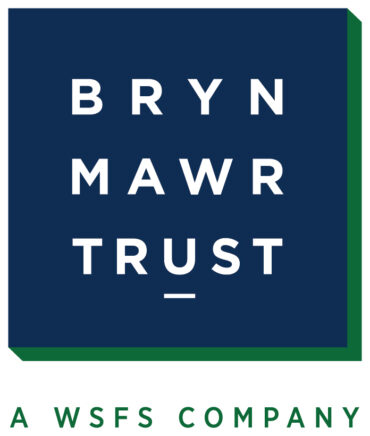Bryn Mawr Trust’s Elizabeth Wagner Helps Transform Charitable Giving into Impactful Legacies, Offers Tips to Maximize Year-End Giving

As Senior Vice President and Director of Institutional Wealth Management at Bryn Mawr Trust, Elizabeth Wagner is more than just a financial expert; she’s a visionary who helps transform charitable giving into impactful legacies.
A devoted community advocate who has served in a variety of roles at many nonprofits throughout her career, in addition to advising her nonprofit clients, Wagner’s work transcends the confines of institutional wealth management. She helps nonprofits build long-term financial sustainability using the full breadth of Bryn Mawr Trust’s services — from endowment management to investment services, cash management, banking, and lending — while simultaneously helping her clients structure their giving to create the impact they seek.
She’s an expert in institutional investment issues; nonprofit governance, financial issues, and management; tax issues related to charitable giving; charitable giving vehicles, especially Donor Advised Funds; and giving within families, empowering multiple generations to work together to achieve common goals related to the family’s legacy.
Prior to joining Bryn Mawr Trust, Wagner was the Chief Philanthropy Officer for the Princeton Area Community Foundation, which tripled in size and distributed more than $100 million in grants during her tenure.
This and her other prior roles led Wagner to her current position and informed her creation of the Nonprofit Sustainability Ladder, a four-rung tool to help organizations plan for fulfilling futures, taking into account their current and future needs and building the financial toolkit needed to meet their missions.
“I help organizations access the solutions that strengthen their work today and prepare them for future challenges and growth,” said Wagner.
Part of those solutions is the public’s generosity, which seems to be something of a national pastime here in the U.S.
“Charitable giving is a uniquely American phenomenon, driven by both social and tax considerations,” said Wagner, whose significant contributions to the nonprofit sector earned her the 2022 Impact Award from New Jersey-based NonProfitConnect. “In 2022, Americans gave $499.33 billion to charitable causes, and just under two-thirds of that came directly from individuals (not corporations, foundations, or bequests).”
December is the month in which we make more charitable gifts than any other, and so Wagner has a few tips to maximize your year-end giving:
Check Your List
Most people give to the same charities annually. Check your list from last year and match it up against what you’ve already done this year.
“If you don’t have a list, start now — use the notes section of your phone to track organization names, dates, and amounts,” said Wagner. “You’ll thank yourself for it next year.”
Think Strategically
Since many people find that their interests shift over time, look at your list and decide if you still care about all those charities. Consider if you can eliminate any organizations that are less important to you.
“As you consolidate your giving, you’ll likely find larger gifts offer you more access to leadership and learning opportunities at the organizations you admire most,” said Wagner.
Consider Appreciated Assets
Giving cash is often the least tax-advantaged asset. Do you have appreciated securities that would make a good charitable gift?
“When you gift securities you’ve held for more than a year, you receive a tax deduction for the market value of the shares,” said Wagner. “Neither you nor the charity pay capital gains tax on any appreciation; you’re able to pass on all that growth directly to the charity tax-free.”
Give from Your IRA
If you’re 70½ or older, you can make Qualified Charitable Donations (QCDs) totaling up to $100,000 directly from your IRA. Once you have a Required Minimum Distribution (RMD), the amount of your QCD counts toward your RMD as well.
“You pay no federal — and depending on where you live, sometimes no state — income tax on the amount donated,” said Wagner.
Gift on Time
Should your contribution arrive after Dec. 31, even if you sent it earlier, you won’t get a tax deduction for 2023. There are many reasons why charitable gifts don’t arrive on time, and often it’s not the donor’s fault, but earlier is always safer.
Learn more about Bryn Mawr Trust and how individuals, multi-generational families, and institutions have turned to it for more than 130 years.
Join Our Community
Never miss a Delaware County story!
"*" indicates required fields

























![95000-1023_ACJ_BannerAd[1]](https://delco.today/wp-content/uploads/sites/3/2023/03/95000-1023_ACJ_BannerAd1.jpg)






